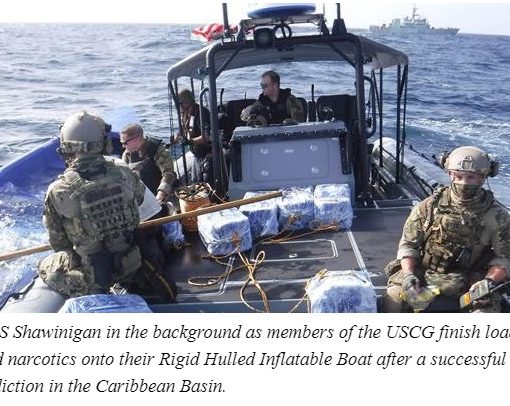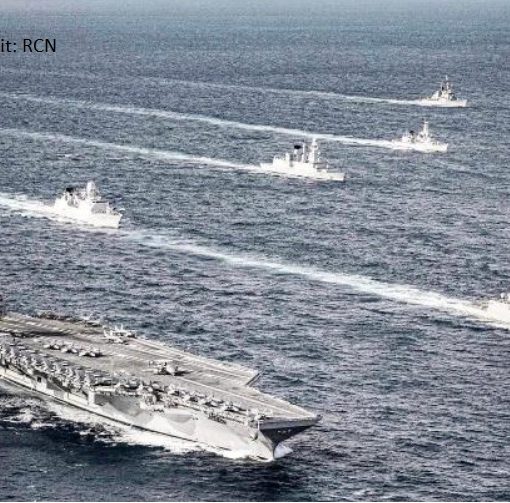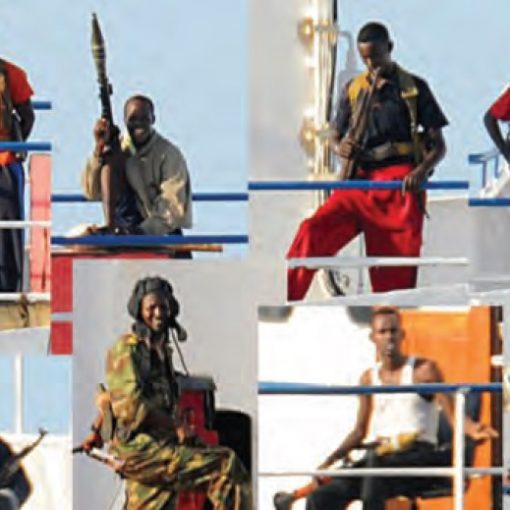By Dr. Ann Griffiths, 8 September 2025
For many years, the Royal Canadian Navy has regularly deployed on Op Caribbe, Canada’s contribution to counter-narcotic operations in the Caribbean and the eastern Pacific, with the US Navy and US Coast Guard. Over the years, the RCN has sent an assortment of frigates, Maritime Coastal Defence Vessels (MCDVs) as well as the new Arctic and Offshore Patrol Ships (AOPSs). For example, HMCS William Hall was deployed earlier in 2025 and, according to the Department of National Defence, seized over 1,500 kilos of cocaine in its time on station. US Coast Guard Law Enforcement Detachments are aboard Canadian ships to provide the legal authority to detain personnel apprehended by the ships. In addition to serving as a deterrent, the ships are expected to track narcotic smugglers, intercept them, confiscate their illicit cargo and detain the personnel.
But the United States may have changed the parameters of its counter-narcotics operations. The administration of Donald Trump has designated eight narcotics gangs/entities as foreign terrorist organizations. Based on this designation, on 2 September, the United States conducted what it described as a ‘lethal strike’ against an alleged drug smuggling vessel in the Caribbean. President Trump stated that the strike had occurred in international waters and killed “11 terrorists.” (This action appears to be part of larger US military deployment to the Caribbean to put pressure on Venezuela. The US deployment includes three destroyers and an amphibious assault group with 4,500 sailors, including 2,500 marines, plus a guided missile cruiser and probably one submarine.)
There has been much debate in the United States about whether the President has the legal authority to order strikes on vessels in international waters in the absence of a state of war, and even in the absence of credible evidence that the vessel was operated by designated ‘narco-terrorists’ for the purposes of narcotic trafficking. (see Brian Finucane, “Legal Issues Raised by a Lethal U.S. Military Attack in the Caribbean,” at https://www.crisisgroup.org/united-states/united-states-venezuela/legal-issues-raised-lethal-us-military-attack-caribbean for a discussion of the legalities in the US case.)
But from a Canadian perspective, it’s more salient to ask what the implications are for continued participation in Op Caribbe. If the attack was illegal under international law and contrary to Canadian rules of engagement in the operation, how will this affect RCN participation in the future? Can RCN ships continue to operate in the region while mindful of the possibility that there will be future lethal strikes against (alleged) narco-terrorists? I hope that this topic is being discussed at high levels in the RCN.
Image: HMCS HARRY DEWOLF (left) and USCGC VIGILANT can be seen from a Rigid Hull Inflatable Boat (RHIB) after the conclusion of a drug trafficking operation where a large amount of seized drugs was transferred to USCGC VIGILANT during OP CARIBBE on November 20, 2021, in the East Pacific Ocean. Credit: Canadian Armed Forces Photo.






9 thoughts on “Thinking about Op Caribbe”
Dr. Griffiths raises fair questions about the US shift in counter narco operations, but I think some clarification and context are needed before we leap to conclusions about the RCN’s future role.
Canadian ROEs and Mission Parameters
Canadian participation in Op CARIBBE is bound by Canadian rules of engagement, Canadian law, and international law. When a Kingston-class, AOPS, or frigate deploys, it does so with clear tasking: surveillance, interdiction, boarding support, and seizure operations in concert with embarked USCG detachments. A Canadian CO does not suddenly fall under US orders if Washington broadens its own ROEs. Any use of force by a Canadian ship or boarding team still flows through Canadian legal review and political authority. In other words: the fact the US conducted a kinetic strike does not mean Canadian ships are somehow implicated or at risk of being drawn into the same approach.
Distinguishing Between “Strike” and “Interdiction”
The US lethal strike appears to be a unilateral action, likely tied more to its Venezuela pressure campaign than the bread and butter of counter narcotics interdictions. Op CARIBBE, as Canadians participate, has always been about the latter. When HMCS William Hall seized 1,500+ kilos earlier this year, it was through the standard model: detect, track, vector, intercept, board via USCG det, seize drugs, and transfer detainees. That’s policing, not combat. Unless Canada deliberately changes policy, that will remain our operational lane.
Political vs Operational Implications
Yes, Washington’s re-designation of drug cartels as “foreign terrorist organizations” muddies the water legally, and yes, the strike in international waters is controversial. But the operational relationship between RCN ships and the USCG is long standing, transparent, and successful. Canada can (and should) continue to participate in multinational drug interdiction efforts while making it clear that Canadian ships are not part of a US driven military escalation. This has been the reality in countless coalition operations: we do our tasks under our ROEs, they do theirs.
Why Staying Matters
Backing away from Op CARIBBE would have consequences. It would cede hard won credibility with both the USN and USCG, and it would reduce Canada’s ability to shape how operations unfold in the Caribbean basin. It would also deny Canadian sailors critical sea time, joint experience, and a chance to make a measurable impact (hundreds of tonnes of cocaine have been seized thanks to Canadian platforms). If we walked away every time the US shifted its doctrine, we’d be absent from half the coalition operations of the last 40 years.
Where Debate Is Useful
The debate isn’t whether Canada should remain engaged, it’s how Ottawa draws bright lines. Clear government guidance, transparent ROEs, and political direction to Commanding Officers will ensure Canadian ships continue their interdiction role without mission creep into US kinetic actions. That’s a political problem, not a naval one.
Conclusion
It’s right to ask questions about legality and alignment with Canadian policy. But suggesting that one US strike throws the whole premise of Op CARIBBE into question overstates the risk. Canadian ships will continue to operate under Canadian authority, doing what they have always done: interdicting smugglers, working with USCG detachments, and punching far above their tonnage in contributing to hemispheric security.
Hello Retired RCN. You are ‘spot-on’ with all your statements! Totally agree!! Cheers!
Retired RCN,
I agree with your carefully considered comments, but I do think that Ottawa needs to ensure that so far as Canada is concerned, participation in Op Caribbe does not include the resort to the unlawful use of force against civilians – narco-terrorists or anyone else – in international waters.
This may be perceived as an over-reaction on my part but I am concerned that the Trump administration has a very twisted view of what its allies should be doing in the war against drugs.
Take, for example, the well reported comment by the U.S. Secretary of State, Marco Rubio, in response to a reporter’s question about whether drug smugglers from countries that are not adversaries could “face unilateral execution from U.S. forces.” Rubio stated that U.S. allies in the region [I presume this could include those countries participating in Op Caribbe, including Canada] would “help us find these people and blow them up if that’s what it takes”,
[See, Chris Iorfadi, “U.S. secretary of state asked if drug boats from allied countries could ever face ‘unilateral execution’”, CBC News, 5 September 2025. https://www.cbc.ca/news/world/us-venezuela-strike-1.7625915%5D
So, I agree, establish the ‘bright lines’ clearly for all to see, just as Ottawa has taken pains to do about Israel’s actions in Gaza. But sometimes it is not possible to anticipate in advance what should be in our naval ROEs.
Take for instance, the case in 2003 when Canada assumed command of Task Force 151. Canada was commanding a multilateral group of 9 warships in the Persian Gulf as part of the fight against terrorism. The United States asked Canada to hand over any suspected Iraqi detainees who might be terrorists. The Canadian Commander had to consult with Ottawa because the government had not yet determined whether or not it would become part of the US-led action against Iraq. Commodore Roger Girouard stated he had no authority to allow Canadian ships to detain Iraqi nationals linked to Saddam Hussein’s regime and that he was told explicitly by Ottawa not to hand over any such detainees to the Americans.
[See, Canadian Press, “Canada’s warships refuse to help U.S.”, Winnipeg Free Press, 9 April 2003. https://www.winnipegfreepress.com/historic/2003/04/09/canadas-warships-refuse-to-help-u-s%5D
Agreed, Canada’s role in Op CARIBBE must stay firmly inside Canadian ROEs and international law.
RCN deployments carry Canadian-written ROEs, vetted by JAG and Cabinet, and any U.S. “blow them up” rhetoric has no legal force over Canadian crews.
If the situation shifts, the ship’s CO pauses, calls Ottawa, and waits for guidance exactly what Commodore Girouard did in 2003.
Bottom line: Canadian ships act only on Canadian orders, period.
Hello Dr. Griffiths. Operation Caribbe is the Canadian Armed Forces contribution to the elimination of illegal narcotics trafficking in the Caribbean Sea and the eastern Pacific Ocean by organized crime. The operation began in 2006 and its mandate has been altered twice since then. It operates as part of Operation Martillo in 2012. In 2005, Canada agreed to send a CP-140 Aurora aircraft for maritime detection purposes in the Caribbean Sea. OP Caribbe then began in November 2006. In October 2010 the mission was expanded with the signing of a Memorandum of Understanding (MOU)between Canada and the United States that allowed law enforcement detachments from the United States Coast Guard to operate from Canadian warships deployed on OP Caribbe.
Command Structure:
Subject to the operational command of Operation Martillo, any forces assigned to Operation Caribbe are under the operational “direction” of the United States Southern Command’s Joint Interagency Task Force South. For the Canadian Armed Forces, National Command is maintained by the Canadian Joint Operations Command. All Canadian warship Commanders apply all Canadian OP Caribbe Rules Of Engagament (C-ROE) at the direction of National Command. If there is any doubt about Canadian ROE during OP Caribbe, Canadian ROE will prevail above all others. The Canadian forces deployed to Operation Caribbe thus far have been warships from the Royal Canadian Navy and CP-140 Auroras and crew from the Royal Canadian Air Force.
Mission:
Canadian warships deployed on Operation Caribbe work in a support role with the USCG, locating and tracking any vessels or targets of interest. Unless provided with law enforcement officers from the United States Coast Guard, the Canadian warships do not participate in the interdiction of those targets. The CP-140 Aurora aircraft and their crews patrol in international airspace over the Caribbean Sea, the Gulf of Mexico and the eastern Pacific Ocean to track targets of interest. They do not participate in the interdiction of suspicious targets. Since 2006 just about every class of Canadian warship has been involved with OP Caribbe including Iroquois, Halifax, Kingston, Harry De Wolfe classes along with CP 140s and it has even been “rumoured” that the Victoria class, at some point, may have also been involved (but we will never know of course).
POTUS changing parameters and deploying his own Amphibious Assault Task Group including destroyers, a cruiser and a Nuclear Submarine to destroy the narcotics smuggler ship and kill 11 Narco-Terrorists with lethal force action is certainly very disconcerting and should give Ottawa and the world “pause” for OP Caribbe in the future. You can “bet your bottom Loonie” that high level GOC/RCN discussions are being held right now.
This article raises crucial questions about Canadas role in Op Caribbe and the impact of U.S. actions on Canadian sovereignty and legal boundaries. The debate about ROEs and mission creep is very relevant and highlights the need for clear guidelines.
Every HMCS deployed on Op CARIBBE sails under Canadian national command and Canadian Rules of Engagement approved by Ottawa—full stop. U.S. Coast Guard Law Enforcement Detachments embark to give legal boarding authority in international waters, but they don’t override Canadian law or chain of command. If Washington changes its own legal framework (e.g., designating gangs as FTOs), that does not alter the Canadian ROE matrix unless the Government of Canada deliberately amends it.
CARIBBE has always been a counter-narcotics mission, not counter-terrorism. Canadian ships track, intercept, and hand over smugglers for prosecution. If the U.S. labels a smuggling network as a terrorist group, that is a political/legal U.S. decision; it doesn’t automatically convert a Canadian boarding party into a counter-terrorism strike team. Any change of mandate—say, authorizing lethal force on first contact—would require explicit Cabinet approval and a new ROE package. There’s no shortcut around that.
Far from eroding Canadian sovereignty, CARIBBE has long been an example of how we exercise it. By embedding U.S. LEDETs while retaining national command, Canada enforces its own Criminal Code and international obligations, while contributing to regional security. Ottawa decides whether to continue, adjust, or withdraw the mission. No U.S. presidential order can compel the RCN to fire a missile or expand its mission set.
CARIBBE builds interoperability and intelligence links that pay dividends in other theatres (think REASSURANCE, NANOOK, or HADR ops). It also gives crews valuable blue-water and boarding experience. Pulling out would not enhance sovereignty; it would shrink Canada’s influence.
‘Ditto’ on all fronts Retired RCN!!!
Interesting CBC piece on this topic, “Why US Strikes on suspected drug boats have Canada ‘between a rock and a hard place,’” on 9 October. See https://www.msn.com/en-ca/news/canada/why-u-s-strikes-on-suspected-drug-boats-have-canada-between-a-rock-and-a-hard-place/ar-AA1OcFKR?ocid=hpmsn&cvid=68e953618f0b464ca9d1921252103909&ei=36